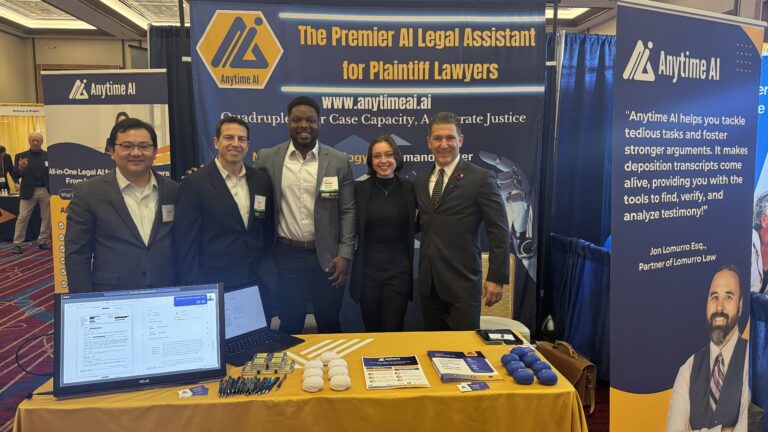Atlantic City was buzzing last week as the New Jersey Association for Justice (NJAJ) hosted its annual Boardwalk Seminar 2025, one of the premier legal conferences on the East Coast. Across three full days of CLEs, panels, and hands-on demos, one theme emerged louder than ever: Artificial Intelligence is no longer on the horizon, it’s here, and it’s transforming the legal profession.
Legal AI Moves from Theory to Practice
AI was a dominant force in conversations, sessions, and hallways alike. What stood out this year was the shift from curiosity to real adoption. Law firms are no longer just exploring AI, they’re implementing it. Speakers across multiple panels addressed how tools powered by machine learning and natural language processing are now being used to:
- Accelerate document review and case analysis
- Enhance client intake and communication
- Predict litigation outcomes
- Support brief drafting and trial preparation
- Uncover insights from medical records in mass tort and personal injury cases
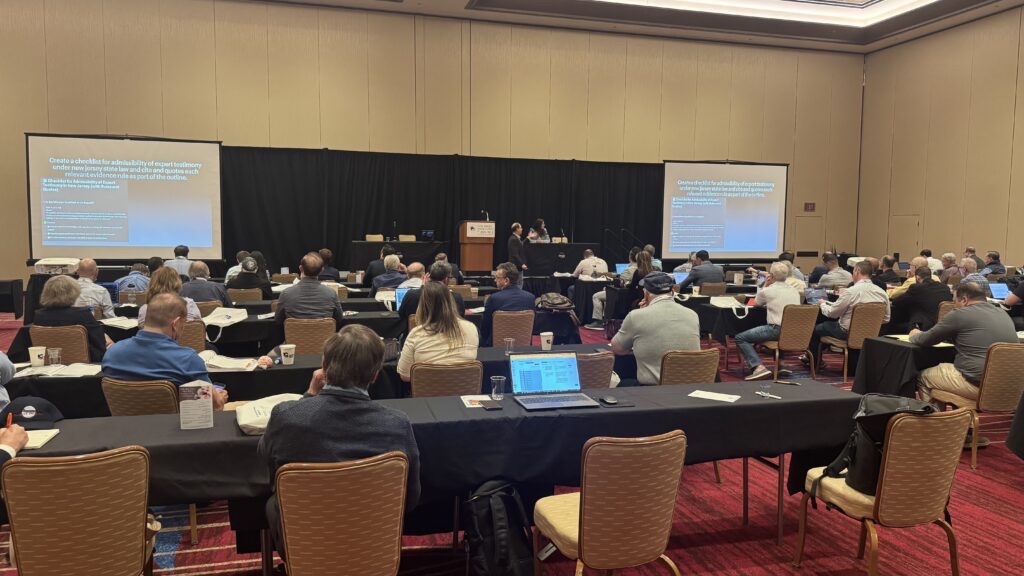
Firms ranging from solo practices to regional powerhouses are realizing that automation isn’t just about speed, it’s about better client outcomes, fewer missed details, and more time for the human side of lawyering.
Anytime AI Joins the Conversation
We were proud to be part of that conversation. Lingfei (Teddy) Wu, our CEO, and Chris Nash, our Director of Business Development, joined litigation technologist and trial attorney Justin Kahn Esq., on the Artificial Intelligence panel. Together, they addressed how AI tools are reshaping everything from intake to courtroom prep, particularly for plaintiff attorneys and trial lawyers who often face overwhelming document volumes and tight deadlines.
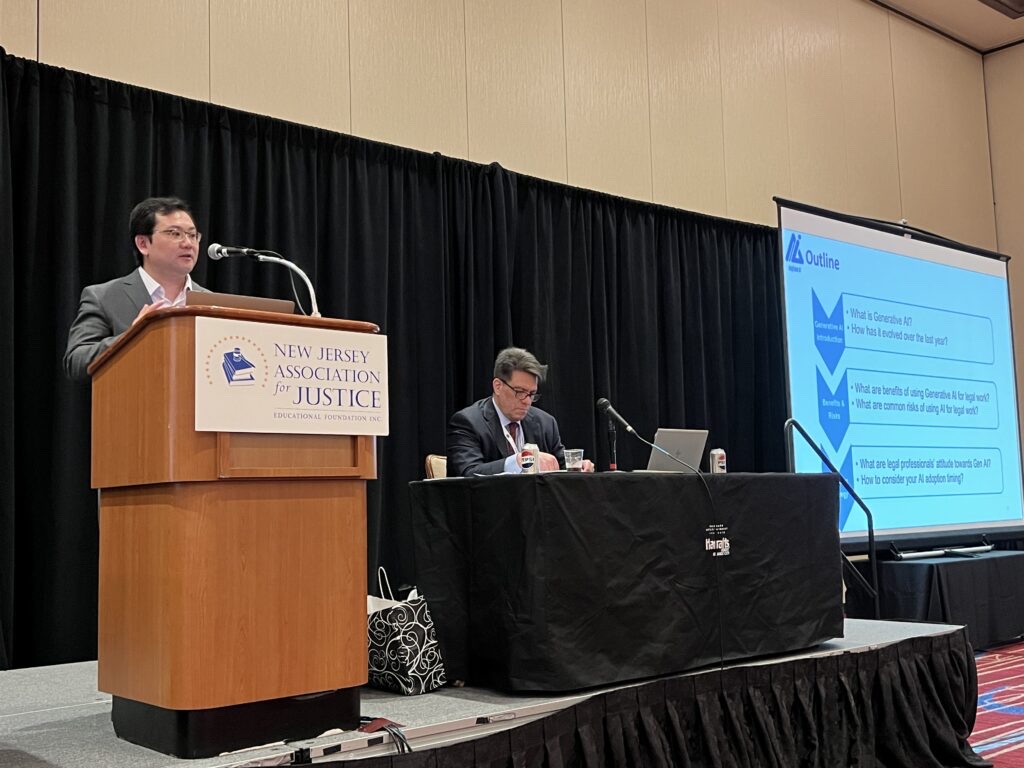
They emphasized:
- Why explainable, ethical AI is crucial for legal credibility and compliance
- How our 5th Generation Anytime AI platform is built with trial workflows in mind
- Case studies from firms already using AI to cut time spent on discovery by 50% or more
Audience engagement was strong, with questions ranging from data privacy to how AI can support small firms without technical staff.
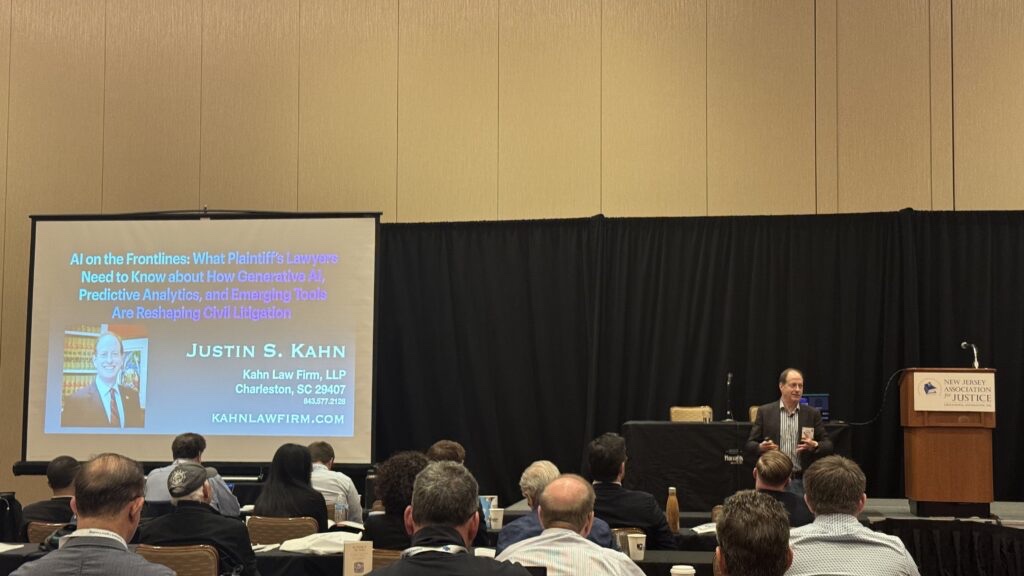
Ethical AI and the Judiciary: A Grounded Conversation
One of the most thought-provoking moments of the seminar came during a panel focused on the ethical use of artificial intelligence in the courtroom and legal practice. Our own John Blake, VP of Revenue at Anytime AI, joined a respected sitting judge and fellow legal technologists to explore where ethics, innovation, and practice intersect.
This conversation wasn’t about flashy features,it was about responsibility, transparency, and trust. Topics ranged from ensuring due process in AI-assisted evidence review, to maintaining confidentiality and bias awareness when using automation in client-facing work.
John emphasized that ethical guardrails and human oversight must be baked into any AI solution from day one, particularly in the legal field where the stakes are high and the margin for error is zero.
The panel reinforced that as AI becomes more embedded in litigation, the legal community must lead, not just in using it, but in using it responsibly.
A Broader Wave of Innovation
Beyond Anytime AI’s session, other standout panels explored:
- AI and Access to Justice: Can smart tools help bridge the legal services gap for underrepresented communities?
- Litigation Analytics: How data and AI are being used to evaluate judges, opposing counsel, and likely case outcomes.
- Ethics and the AI-Driven Lawyer: Navigating the ethical challenges of using generative tools for legal writing and strategy.
Speakers shared stories of using AI to uncover key evidence buried in medical files, to draft first-pass motions, and to reduce burnout among associates by automating low-value tasks.
As one litigator put it:
“The firms that learn to collaborate with AI will outperform those who try to compete against it.”
Live Demos & Real Conversations
At Booth 608, the Anytime AI team, John Blake, Adrianna Wasiak, and Dan Ebanks, welcomed a steady stream of curious attorneys. From real-time demos of our platform to in-depth chats about how AI fits into existing workflows, the energy was palpable.
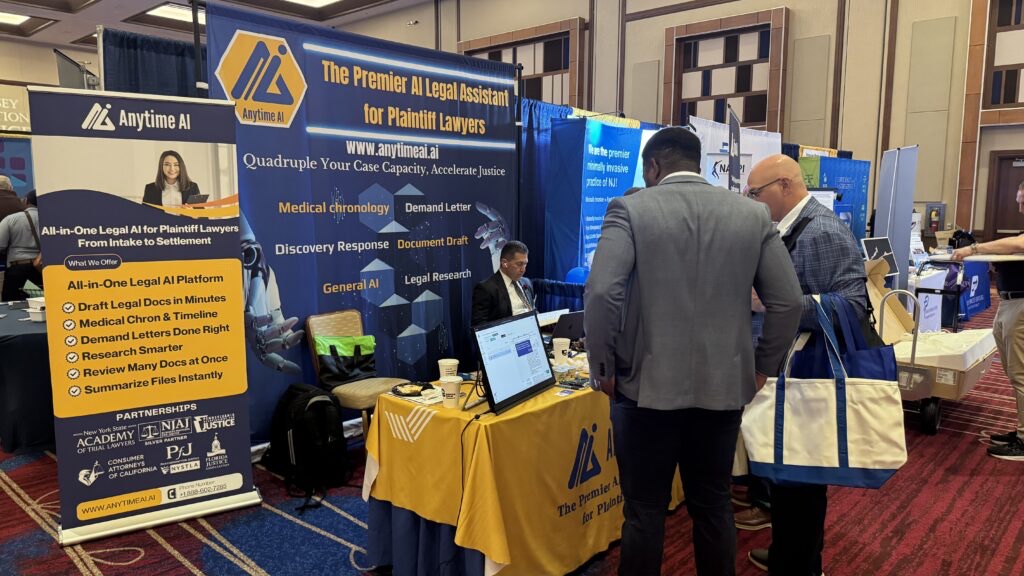
Lawyers wanted answers to real-world questions:
- Can I trust AI to help with deposition prep?
- What about HIPAA and data compliance?
- How long does it take to train the platform on my firm’s work style?
The consensus: the legal community is eager to learn, and they’re ready to adopt solutions that are intuitive, secure, and built for real trial work.
Looking Ahead
As the curtains closed on NJAJ Boardwalk Seminar 2025, one thing was undeniable: the future of legal practice is being written right now, and AI is holding the pen.
We left the conference not just inspired, but energized by the momentum in the trial bar community. Across every conversation, panel, and demo, the message was clear: trial lawyers are no longer sitting on the sidelines of legal innovation, they’re leading it. From solo practitioners seeking to reclaim time and precision, to larger firms building intelligent litigation pipelines, attorneys are embracing AI not as a threat, but as an ally in their pursuit of justice.
What stood out most was the openness to transformation. The lawyers we met aren’t waiting for permission to modernize, they’re demanding tools that match the urgency and complexity of their work. They want platforms that reflect the way they litigate, the way they think, and the way they serve clients.
And at Anytime AI, we’re here to deliver that.
But this is just the beginning. The conversations that started at NJAJ will continue to ripple across courtrooms, offices, and boardrooms. We’re committed to supporting that evolution, through better technology, deeper collaboration, and a shared vision of what legal work can become when powered by intelligence and designed for lawyers.



